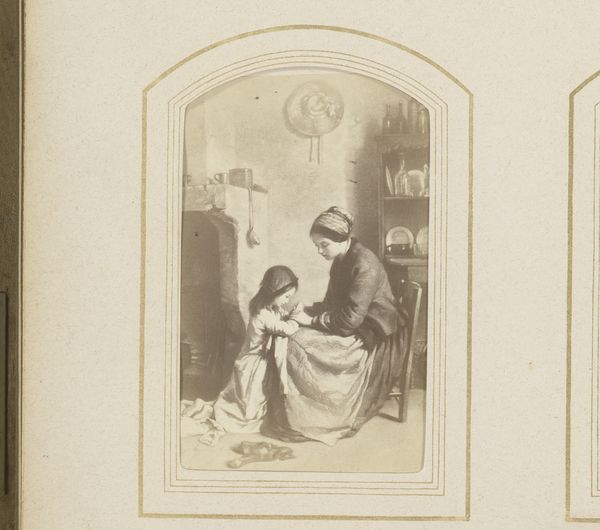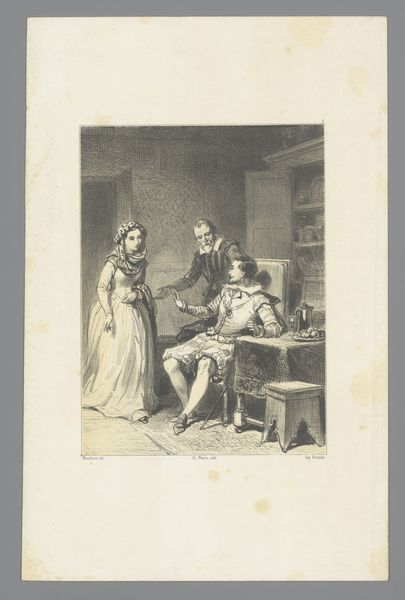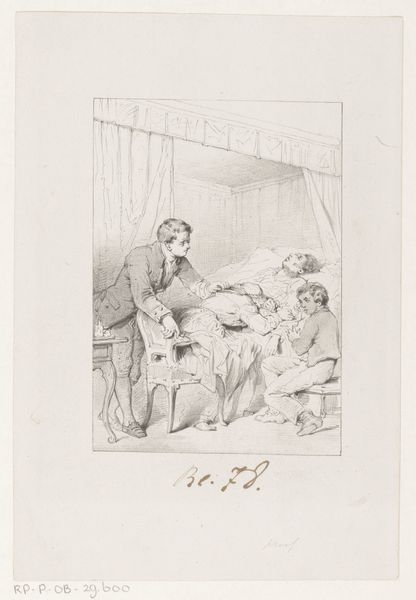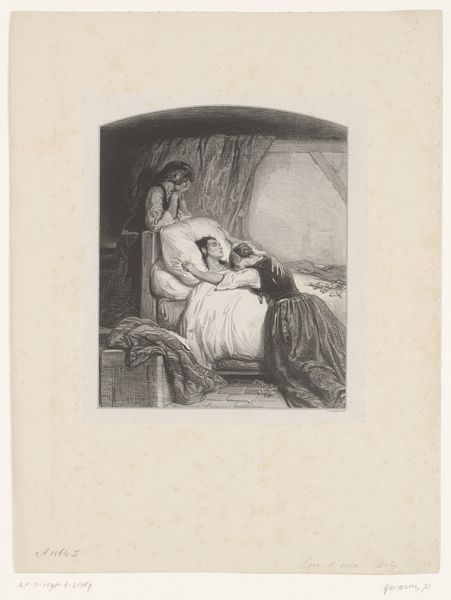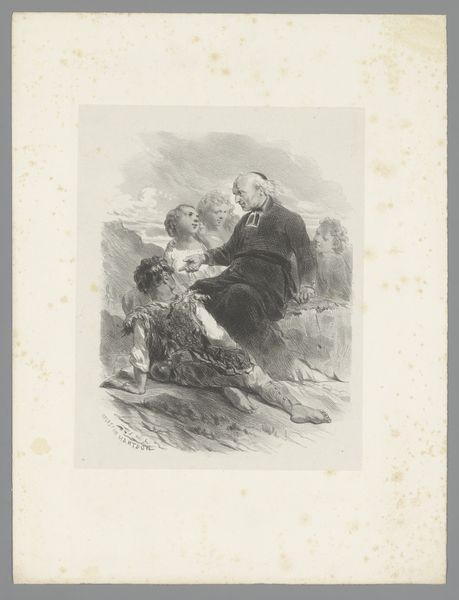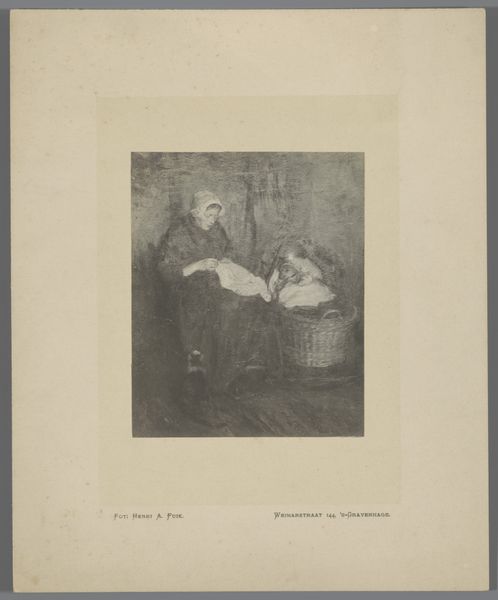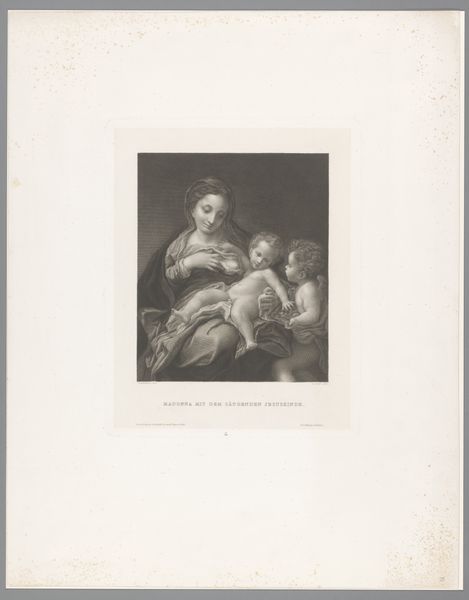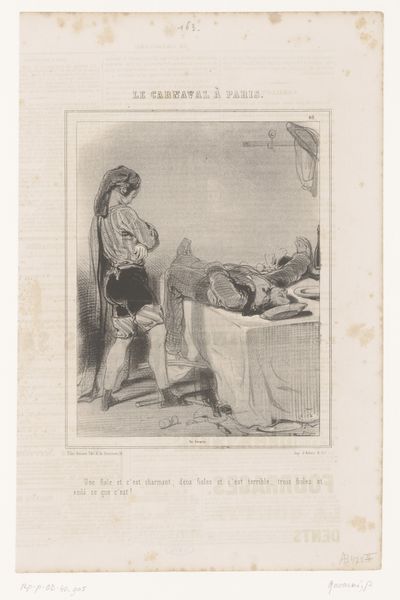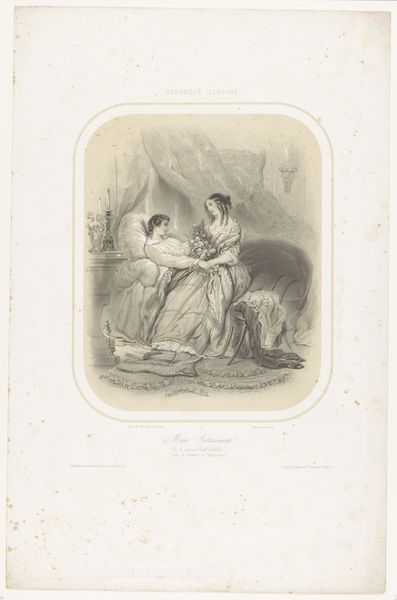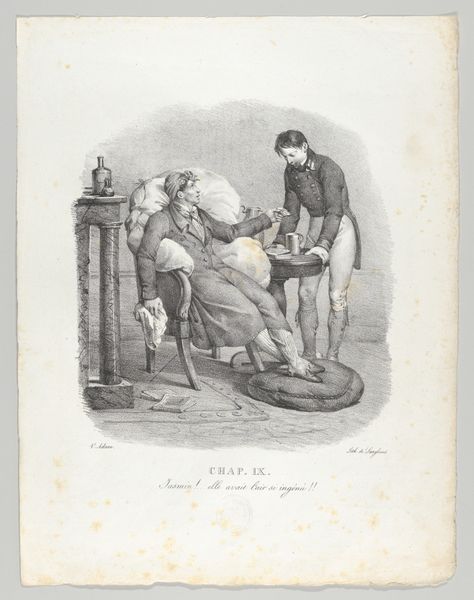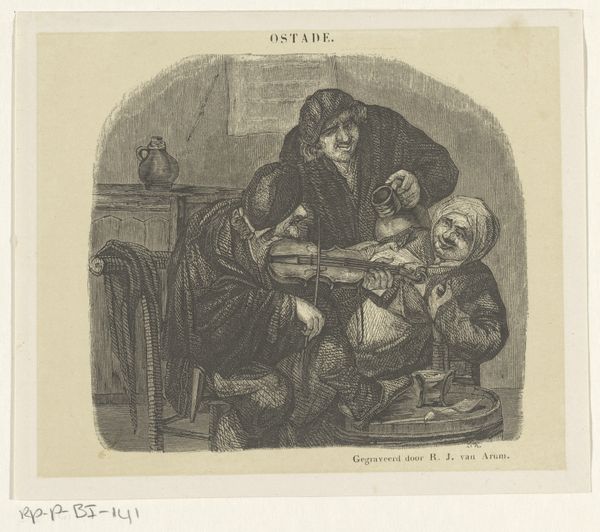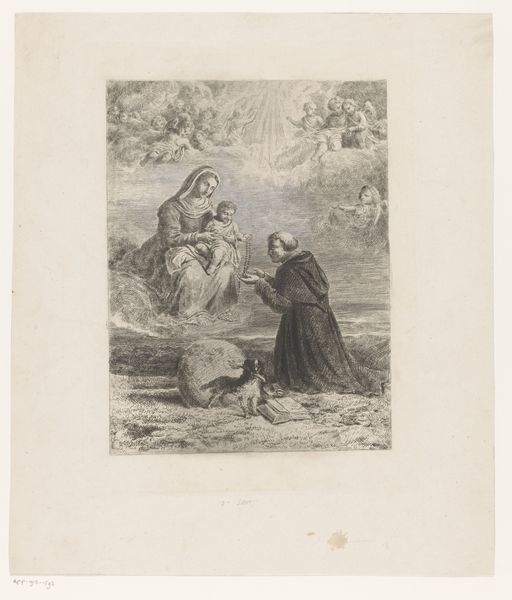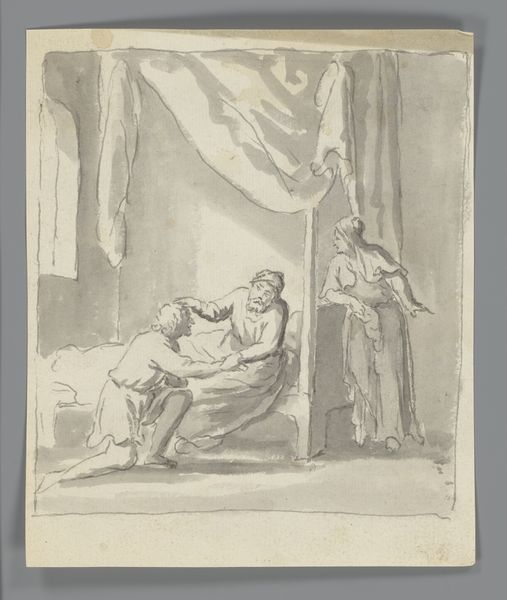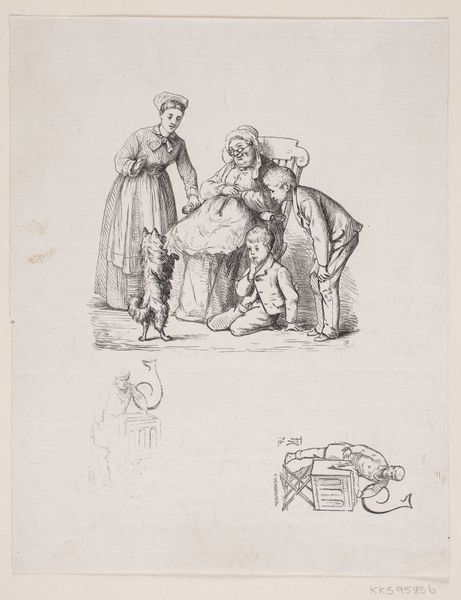
Ein Kind, das nicht beten will (Persiflage auf die betenden Kinder von Meyer von Bremen, Becker und andere)
0:00
0:00
drawing, pencil
#
portrait
#
pencil drawn
#
drawing
#
16_19th-century
#
caricature
#
pencil sketch
#
pencil drawing
#
pencil
#
pencil work
#
academic-art
Copyright: Public Domain
Editor: So, this drawing is by Johann Baptist Scholl the Younger. It's called "Ein Kind, das nicht beten will," which translates to "A child who does not want to pray." It looks like a caricature and feels rather unsettling. What do you see in this piece that stands out? Curator: The immediate symbol that strikes me is the act of forcing a child into prayer. In a historical context, this action represents power dynamics and religious coercion. Notice the woman holding what appears to be a rod, a clear symbol of authority and perhaps even punishment. The child's distress is palpable. Editor: Yes, that rod seems to symbolize the suppression of the child's will. Is there perhaps a cultural association we can gather by its inclusion? Curator: Absolutely. Consider how 'prayer' functions here. Is it genuine devotion, or a performance demanded by societal expectations? The rod suggests the latter. It becomes less about faith and more about control, fitting into a history of social expectations placed upon children, especially in religious contexts. The woman's facial expression is interesting—it lacks compassion and might even be laced with a sense of obligation rather than genuine spirituality. Editor: So it almost challenges the sentimentality often associated with children in art. Curator: Precisely. It's a stark departure. Scholl uses caricature to disrupt that idealized image. How do the poses of the other figures impact your perception? Editor: The other figure, a child, seems like she’s complicit in the scene… Observing rather than acting, which adds another layer to it all! I suppose the drawing really speaks volumes about cultural expectations and how those can be quite oppressive, doesn't it? Curator: Exactly! And even the act of caricaturing itself reflects a break from the conventions of portraiture. Scholl transforms an everyday moment into a pointed commentary, and that's what makes it so striking.
Comments
No comments
Be the first to comment and join the conversation on the ultimate creative platform.
